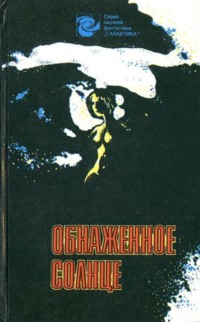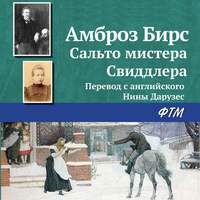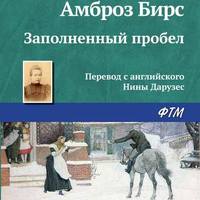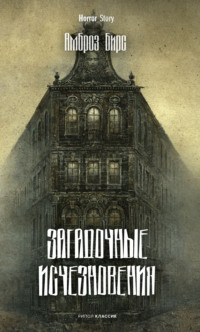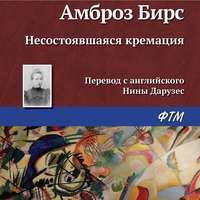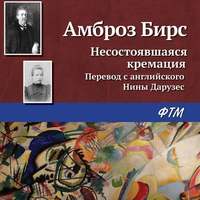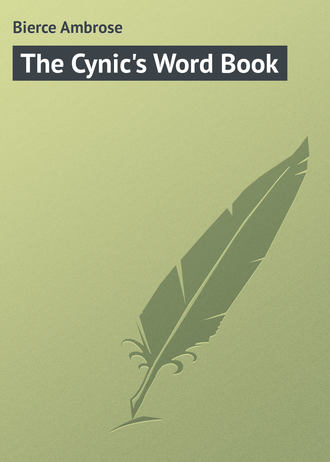 полная версия
полная версияThe Cynic's Word Book
HALO, n. Properly, a luminous ring encircling an astronomical body, but not infrequently confounded with "aureola," or "nimbus," a somewhat similar phenomenon worn as a head-dress by divinities and saints. The halo is a purely optical illusion, produced by moisture in the air, in the manner of a rainbow; but the aureola is conferred as a sign of superior sanctity, in the same way as a bishop's mitre, or the Pope's tiara. In the painting of the Nativity, by Szedgkin, a pious artist of Pesth, not only do the Virgin and the Child wear the nimbus, but an ass nibbling hay from the sacred manger is similarly decorated and, to his lasting honor be it said, appears to bear his unaccustomed dignity with a truly saintly grace.
HAND, n. A singular instrument worn at the end of the human arm and commonly thrust into somebody's pocket.
HANDKERCHIEF, n. A small square of silk or linen, used in various ignoble offices about the face and especially serviceable at funerals to conceal the lack of tears. The handkerchief is of recent invention; our ancestors knew nothing of it and intrusted its duties to the sleeve. Shakespeare's introducing it into the play of "Othello" is an anachronism: Desdamona dried her nose with her coat-tails as Dr. Mary Walker and other reformers have done in our own day – an evidence that revolutions sometimes go backward.
HANGMAN, n. An officer of the law charged with duties of the highest dignity and utmost gravity, and held in hereditary disesteem by a populace having a criminal ancestry. In some of the American States his functions are now performed by an electrician, as in New Jersey, where executions by electricity have recently been ordered – the first instance known to this lexicographer of anybody questioning the expediency of hanging Jersey men.
HAPPINESS, n. An agreeble sensation arising from contemplating the misery of another.
HARANGUE, n. A speech by an opponent, who is known as an harangoutang.
HARBOR, n. A place where ships taking shelter from storms are exposed to the fury of the customs.
HARMONISTS, n. A sect of Protestants, now extinct, who came from Europe in the beginning of the last century and were distinguished for the bitterness of their internal controversies and dissensions.
HASH, x. There is no definition for this word – nobody knows what hash is.
HATCHET, n. A young axe, known among Indians as a Thomashawk.
"O bury the hatchet, irascible Red, For peace is a blessing," the White Man said. The Savage concurred, and that weapon interred, With imposing rites, in the White Man's head. John Lukkus.HATRED, n. The sentiment appropriate to the occasion of another's success or superiority.
HEAD-MONEY, n. A capitation or polltax.
In ancient times there lived a king Whose tax-collectors could not wring From all his subjects gold enough To make the royal way less rough. For pleasure's highway, like the dames Whose premises adjoin it, claims Perpetual repairing. So The tax-collectors in a row Appeared before the throne to pray Their master to devise some way To swell the revenue. "So great," Said they, "are the demands of state A tithe of all that we collect Will scarcely meet them. Pray reflect: How, if one-tenth we must resign, Can we exist on t'other nine?" The monarch asked them in reply: "Has it occurred to you to try The advantage of economy?" "It has," the spokesman said: "we sold All of our gay garrotes of gold; With plated-ware we now compress The necks of those whom we assess. Plain iron forceps we employ To mitigate the miser's joy Who hoards, with greed that never tires, That which your Majesty requires." Deep lines of thought were seen to plow Their way across the royal brow. "Your state is desperate, no question; Pray favor me with a suggestion." "O King of Men," the spokesman said, "If you 'll impose upon each head A tax, the augmented revenue We 'll cheerfully divide with you." As flashes of the sun illume The parted storm-cloud's sullen gloom, The king smiled grimly. "I decree That it be so – and, not to be In generosity outdone, Declare you, each and every one, Exempted from the operation Of this new law of capitation. But lest the people censure me Because they 're bound and you are free, 'T were well some clever scheme were laid By you this poll-tax to evade. I 'll leave you now while you confer With my most trusted minister." The monarch from the throne-room walked And straightway in among them stalked A silent man, with brow concealed, Bare-armed – his gleaming axe revealed! G. J.HEARSE, n. Death's baby-carriage.
HEART, n. An automatic, muscular blood-pump. Figuratively, this useful organ is said to be the seat of emotions and sentiments – a very pretty fancy which, however, is nothing but a survival of a once universal belief. It is now known that the sentiments and emotions reside in the stomach, being evolved from food by chemical action of the gastric fluid. The exact process by which a beefsteak becomes a feeling – tender or not, according to the age of the animal from which it was cut; the successive stages of elaboration through which a caviare sandwich is transmuted to a quaint fancy and reappears as a pungent epigram; the marvellous functional methods of converting a hard-boiled egg into religious contrition, or a cream-puff into a sigh of sensibility – these things have been patiently ascertained by M. Pasteur, and by him expounded with convincing lucidity. (See, also, my monograph on "The Essential Identity of the Spiritual Affections and Certain Intestinal Gases Freed in Digestion" – 4to, 687 pp.) In a scientific work entitled, I believe, Delectatio Demonorum (John Camden Hotten, London, 1873) this view of the sentiments receives a striking illustration and support in the author's account of an experiment made with a view to testing it. The stomach of a man who had died of a surfeit of turkey on Thanksgiving Day was removed and kept tightly closed until it was greatly distended with the gases produced by digestion. The compression on the neck of it being then relaxed, the words, "Praise God from whom all blessings flow!" were heard with distinct articulation, as the swollen organ collapsed. It is nonsense to ignore, belittle, pervert or deny the significance of a fact like that. For further light upon this subject, consult Professor Dam's famous treatise on "Love as a product of Alimentary Maceration."
HEAT, n.
Heat, says Professor Tyndall, is a mode Of motion, but I know now how he's proving His point; but this I know – hot words bestowed With skill will set the human fist a-moving, And where it stops the stars burn free and wild. Trust an eye-witness – I've been there, my child. Gorton Swope.HEATHEN, n. A benighted creature who has the folly to worship something that he can see and feel. According to Professor Howison, of the California State University, Hebrews are heathens.
"The Hebrews are heathens!" says Howison. He 's A Christian philosopher. I'm A scurril agnostical chap, if you please, Addicted too much to the crime Of religious discussion in rhyme. Though Hebrew and Howison cannot agree On a modus vivendi – not they! — Yet Heaven has had the designing of me, And I have n't been built in a way To joy in the thick of the fray. For this of my creed is the soul and the gist, And the truth of it I aver: Who differs from me in his faith is an 'ist, An 'ite, an 'ic, and an 'er And I 'm down upon him or her! Let Howison urge with perfunctory chin Toleration – that's all very well, But a roast is "nuts" to his nostril thin, And he's running – I know by the smell — A secret, particular hell! Bissell Gip.HEAVEN, n. A place where the wicked cease from troubling you with talk of their personal affairs, and the good listen with attention while you expound your own.
HEBREW, n. A male Jew, as distinguished from the Shebrew, an altogether superior creation.
HELPMATE, n. A wife, or bitter half.
"Now, why is yer wife called a helpmate, Pat?" Says the priest. "Since the time o' yer wooin' She 's niver assisted in what ye were at — For it 's naught ye are ever doin'." "That 's true of yer Riverence," Patrick replies, And no sign of contrition evinces; "But, bedad, it 's a fact which the word implies, For she helps to mate the expinses!" Marley Wottel.HEMP, n. A plant from whose fibrous bark is made an article of neckwear which is frequently put on after public speaking in the open air and prevents the wearer from taking cold.
HERMIT, n. A person whose vices and follies are not sociable.
HERS, pron. His.
HIBERNATE, v. To pass the winter season in domestic seclusion. There have been many singular popular notions about the hibernation of various animals. Many believe that the bear hibernates during the whole winter and subsists by mechanically sucking its paws. It is admitted that it comes out of its retirement in the spring so lean that it has to try twice before it can cast a shadow. Three or four centuries ago, in England, no fact was better attested than that swallows passed the winter months in the mud at the bottoms of the brooks, clinging together in globular masses. They have apparently been compelled to give up the custom on account of the foulness of the brooks. Sotus Escobius discovered in Central Asia a whole nation of people who hibernated. By some investigators, the fasting of Lent is supposed to have been originally a modified form of hibernation, to which the Church gave a religious significance; but this view is strenuously opposed by that eminent authority, Bishop Kip, who does not wish any honors denied to the memory of the Founder of his family.
HIPPOGRIFF, n. An animal (now extinct) which was half horse and half griffin. The griffin was itself a compound creature, half lion and half eagle. The hippogriff was therefore one quarter eagle, which is two dollars and fifty cents in gold. The study of natural history is full of surprises.
HISTORIAN, n. A broad-gauge gossip.
HISTORY, n. An account, mostly false, of events, mostly unimportant, which are brought about by rulers, mostly knaves, and soldiers, mostly fools.
Of Roman history, great Niebuhr's shown 'T is nine-tenths lying. Faith, I wish 't were known, Ere we accept great Niebuhr as a guide, Wherein he blundered and how much he lied. Solder Bupp.HOG, n. A bird remarkable for the catholicity of its appetite and serving to illustrate that of ours. Among the Mahometans and Jews, the hog is not in favor as an article of diet, but is respected for the delicacy of its habits, the beauty of its plumage, and the melody of its voice. It is chiefly as a songster that the fowl is esteemed; a cage of him in full chorus has been known to draw tears from two persons at once. The scientific name of this dicky-bird is Porcus Rockefelleri. Mr. Rockefeller did not discover the hog, but it is considered his by right of resemblance.
HOMOEOPATHIST, n. The humorist of the medical profession.
HOMOEOPATHY, n. A school of medicine midway between Allopathy and Christian Science. To the last both the others are distinctly inferior, for Christian Science will cure imaginary diseases and they can not.
HOMICIDE, n. The slaying of one human being by another. There are four kinds of homicide: felonious, excusable, justifiable, and praiseworthy, but it makes no great difference to the person slain whether he fell by one kind or another – the classification is for advantage of the lawyers.
HOMILETICS, n. The science of adapting sermons to the spiritual needs, capacities, and conditions of the congregation.
So skilled the parson was in homiletics That all his moral purges and emetics To medicine the spirit were compounded With a most just discrimination, founded Upon a rigorous examination Of tongue and pulse and heart and respiration. Then, having diagnosed each one's condition, His scriptural specifics this physician Administered – his pills so efficacious And pukes of disposition so vivacious That souls afflicted with ten kinds of Adam Were convalescent ere they knew they had 'em. But Slander's tongue – itself all coated – uttered Her bilious mind and scandalously muttered That in the case of patients having money The pills were sugar and the pukes were honey. Biography of Bishop Potter,HONORABLE, adj. Afflicted with an impediment in one's reach. In legislative bodies it is customary to mention all members as honorable; as, "the honorable gentleman is a scurvy cur."
HOPE, n. Desire and expectation rolled into one.
Delicious Hope! when naught to man is left — Of fortune destitute, of friends bereft; When even his dog deserts him, and his goat With tranquil disaffection chews his coat While yet it hangs upon his back; then thou, The star far-flaming on thine angel brow, Descendest, radiant, from the skies to hint The promise of a clerkship in the Mint. Fogarty Weffing.HOSPITALITY, n. The virtue which induces us to lodge and feed certain persons who are not in want of food and lodging.
HOSTILITY, n. A peculiarly sharp and specially applied sense of the earth's overpopulation. Hostility is classed as active and passive; as (respectively) the feeling of a woman for her female friends, and that which she entertains for all the rest of her sex.
HOURI, n. A comely female inhabiting the Mohammedan Paradise to make things cheery for the good musselman, whose belief in her existence marks a noble discontent with his earthly spouse, whom he denies a soul. By that good lady the Houris are said to be held in deficient esteem.
HOUSE, n. A hollow edifice erected for the habitation of man, rat, mouse, beetle, cockroach, fly, mosquito, flea, bacillus, and microbe. House of Correction, a place of reward for political and personal service, and for the detention of appropriations and offenders. House of God, a building with a steeple and a mortgage on it. House-dog, a pestilent beast kept on domestic premises to insult persons passing by and appal the hardy visitor. House-maid, a youngerly person of the opposing sex employed to be variously disagreeable and ingeniously unclean in the station in which it has pleased God to place her.
HOUSELESS, adj. Having paid all taxes on household goods.
HOVEL, n. The fruit of a flower called the Palace.
Twaddle had a hovel, Twiddle had a palace; Twaddle said: "I'll grovel Or he 'll think I bear him malice A sentiment as novel As a chimney on a chalice. Down upon the middle Of his legs fell Twaddle And astonished Mr. Twiddle, Who began to lift his noddle, Feed upon the fiddle Faddle flummery, unswaddle A new-born self-sufficiency and thine himself a model. G.J.HUMANITY, n. The human race, collectively, exclusive of the anthropoid poets.
HUMORIST, n. A plague that would have softened down the hoar austerity of Pharaoh's heart and persuaded him to dismiss Israel with his best wishes, cat-quick.
Lo! the poor humorist, whose tortured mind Sees jokes in crowds, though still to gloom inclined — Whose simple appetite, untaught to stray, His brains, renewed by night, consumes by day. He thinks, admitted to an equal sty, A graceful hog would bear his company. Alexander Poke.HURRICANE, n. An atmospheric demonstration once very common but now generally abandoned for the tornado and cyclone. The hurricane is still in popular use in the West Indies and is preferred by certain oldfashioned sea-captains. It is also used in the construction of the upper decks of steamboats, but generally speaking, the hurricane's usefulness has outlasted it.
HURRY, n. The dispatch of bunglers.
HUSBAND, n. One who, having dined, is charged with the care of the plate.
HYBRID, n. A pooled issue.
HYDRA, n. A kind of animal that the ancients catalogued under many heads.
HYENA, n. A beast held in reverence by some oriental nations from its habit of frequenting at night the burial-places of the dead. But the observant medical student loathes the creature, for he knows why it goes to the graveyard. He has met it there.
HYPOCHONDRIASIS, n. Depression of one's own spirits.
Some heaps of trash upon a vacant lot Where long the village rubbish had been shot Displayed a sign among the stuff and stumps — "Hypochondriasis." It meant The Dumps. Bogul S, Purvy.HYPOCRITE, n. One who, professing virtues that he does not respect, secures the advantage of seeming to be what he despises.
I
I is the first letter of the alphabet, the first word of the language, the first thought of the mind, the first object of affection. In grammar it is a pronoun of the first person and singular number. Its plural is said to be We, but how there can be more than one myself is doubtless clearer to the grammarians than it is to the author of this incomparable dictionary. Conception of two myselves is difficult, but fine. The frank yet graceful use of "I" distinguishes a good writer from a bad; the latter carries it with the demeanor of the Impenitent Thief packing his cross up Calvary.
ICHOR, n. A fluid that served the gods and goddesses in place of blood.
Fair Venus, speared by Diomed, Restrained the raging chief and said: "Behold, rash mortal, whom you 've bled — Your soul's stained white with ichorshed!" Mary Doke.ICONOCLAST, n. A breaker of idols, the worshippers whereof are imperfectly gratified by the performance, and most strenuously protest that he unbuildeth but doth not reëdify, that he teareth down but pileth not up. For the poor things would have other idols in place of those he thwacketh upon the mazzard and dispelleth. But the iconoclast saith: "Ye shall have none at all, for ye need them not; and if the rebuilder fooleth round hereabout, behold I will depress the head of him and sit thereon till he squawk it."
IDIOT, n. A member of a large and powerful tribe whose influence in human affairs has always been dominant and controlling. The Idiot's activity is not confined to any special field of thought or action, but "pervades and regulates the whole." He has the last word in everything; his decision is unappealable. He sets the fashions of opinion and taste, dictates the limitations of speech and circumscribes conduct with a deadline.
IDLENESS, n. A model farm where the devil experiments with seeds of new sins and promotes the growth of untried vices.
IGNORAMUS, n. A person unacquainted with certain kinds of knowledge familiar to yourself, and having certain other kinds that you know nothing about.
Dumble was an ignoramus, Mumble was for learning famous. Mumble said one day to Dumble: "Ignorance should be more humble. Not a spark have you of knowledge That was got in any college." Dumble said to Mumble: "Truly You 're self-satisfied unduly. Of things in college I 'm denied A knowledge – you of all outside." BorelluILLUMINATI, n. A sect of Spanish heretics of the latter part of the sixteenth century; so called because they were light weights —cunctationes illuminati.
ILLUSTRIOUS, adj. Suitably placed for the shafts of malice, envy, and detraction.
IMAGINATION, n. A warehouse of facts, with poet and liar in joint ownership.
IMBECILITY, n. A kind of divine inspiration, or sacred fire, affecting censorious critics of this dictionary.
IMMIGRANT, n. An unenlightened person who thinks one country better than another.
IMMODEST, adj. Having a strong sense of one's own merit, coupled with a feeble conception of worth in others.
There'was once a man in Ispahan Ever and ever so long ago, And he had a head, the phrenologists said, That fitted him for a show. For his modesty's bump was so large a lump (Nature, they said, had taken a freak) That its summit stood far above the wood Of his hair, like a mountain peak. So modest a man in all Ispahan, Over and over again they swore — So humble and meek, you would vainly seek; None ever was found before. Meantime the hump of that awful bump Into the heavens contrived to get To so great a height that they called the wight The man with a minaret. There was n't a man in all Ispahan Prouder, or louder in praise of his chump: With a tireless tongue and a brazen lung He bragged of that beautiful bump Till the Shah in a rage sent a trusty page Bearing a sack and a bow-string too, And that gentle child explained as he smiled: "A little present for you." The saddest man in all Ispahan, Sniffed at the gift, yet accepted the same. "If I'd lived," said he, "my humility Had given me deathless fame!" Sukker Uffro.IMMORAL, adj. Inexpedient. Whatever in the long run, and with regard to the greater number of instances men find to be generally inexpedient, comes to be considered wrong, wicked, immoral. If men's notions of right and wrong have any other basis than this of expediency; if they originated, or could have originated, in any other way; if actions have in themselves a moral character apart from, and nowise dependent on, their consequences – then all philosophy is a lie and reason a disorder of the mind.
IMMORTALITY, n.
A toy which people cry for, And on their knees apply for, Dispute, contend, and lie for, And if allowed Would be right proud Eternally to die for. G. J.IMPALE, v. t. In popular usage to pierce with any weapon which remains fixed in the wound. This, however, is inaccurate; to impale is, properly, to put to death by thrusting an upright sharp stake into the body, the victim being left in a sitting position. This was a common mode of punishment among many of the nations of antiquity, and is still in high favor in China and other parts of Asia. Down to the beginning of the Fifteenth Century it was widely employed in churching heretics and schismatics. Wolecraft calls it the "stoole of repentynge," and among the common people it was jocularly known as "riding the one legged horse." Ludwig Salzmann informs us that in Thibet impalement is considered the most appropriate punishment for crimes against religion; and although in China it is sometimes awarded to secular offences, it is most frequently adjudged in cases of sacrilege. To the person in actual experience of impalement it must be a matter of minor importance by what kind of civil or religious dissent he was made acquainted with its discomforts; but doubtless he would feel a certain satisfaction if able to contemplate himself in the character of a weather-cock on the spire of the True Church.
IMPARTIAL, adj. Unable to perceive any promise of personal advantage from espousing either side of a controversy or adopting either of two conflicting opinions.
IMPENITENCE, n. A state of mind intermediate in point of time between sin and punishment.
IMPIETY, n. Your irreverence toward my deity.
IMPOSITION, n. The act of blessing or consecrating by the laying on of hands – a ceremony common to many ecclesiastical systems, but performed with the frankest sincerity by the sect known as Thieves.
"Lo! by the laying on of hands," Say parson, priest, and dervise, "We consecrate your cash and lands To ecclesiastic service. No doubt you 'll swear till all is blue At such an imposition. Do." Polio Doncas,IMPOSTOR, n. A rival aspirant to public honors.
IMPROBABILITY, n.
His tale he told with a solemn face And a tender, melancholy grace. Improbable't was, no doubt, When you came to think it out, But the fascinated crowd Their deep surprise avowed And all with a single voice averred 'T was the most amazing thing they 'd heard — All save one who spake never a word, But sat as mum As if deaf and dumb, Serene, indifferent, and unstirred. Then all the others turned to him And scrutinized him limb from limb — Scanned him alive, But he seemed to thrive And tranquiler grow each minute, As if there were nothing in it. "What! what!" cried one, "are you not amazed At what our friend has told?" He raised Soberly then his eyes and gazed In a natural way And proceeded to say, As he crossed his feet on the mantel-shelf: "O no – not at all; I'ma liar myself."IMPROVIDENCE, n. Provision for the needs of to-day from the revenues of to-morrow.


